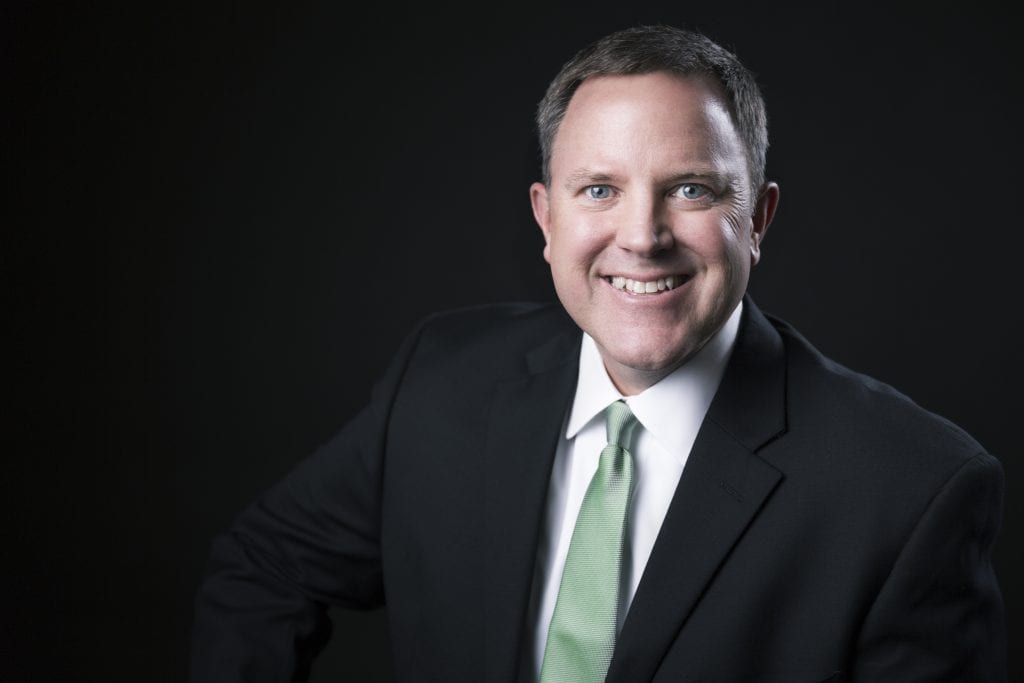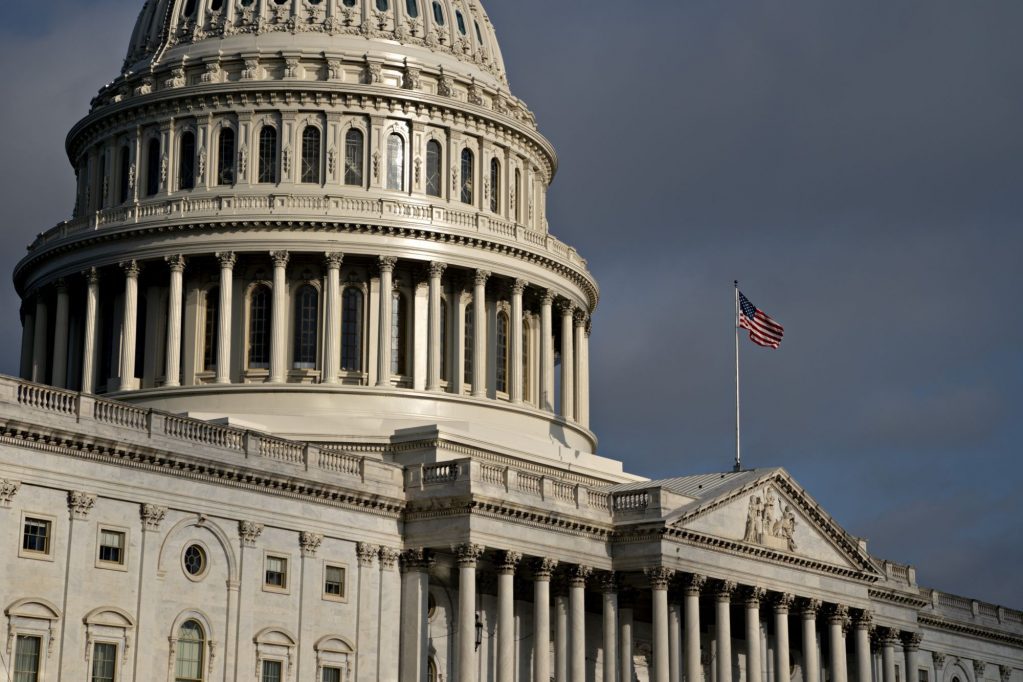Skift Take
Kevin O’Malley has joined forces with the biggest agencies in a new lobbying group, but with the virus escalating, it's not guaranteed they'll be able to bend the ear of Washington.
Corporate travel agencies in the U.S. are suffering a double blow. The first decimated bookings as global travel abruptly halted. Now, after watching the devastation spread across Asia and Europe, agencies are bracing for a knockout punch from the next phase of the pandemic.
Yes, the government reacted with a $2.2 trillion aid package, said Travel and Transport’s CEO — but he argues it has left many corporate travel agencies, particularly those that are mid-sized, to fend for themselves.
Kevin O’Malley spoke to Skift about why he joined forces with rivals to hire a lobby group, how the crisis hit the Omaha-based business, and how he’s preparing for the recovery.
Get the Latest on Coronavirus and the Travel Industry on Skift’s Liveblog
The interview has been edited for brevity and clarity.
Skift: How has Travel and Transport been affected so far?
Kevin O’Malley: It’s been quite a journey in a short period of time, to go from a relatively strong January to see our transactions drop off to almost no bookings at this point.
There have been some clients traveling, companies doing essential work, or medical work related to hospitals. But mostly our volume has gone down by 95-plus percent. It’s never something you would actually plan for.
Skift: What actions have you had to take?
O’Malley: Like many in travel, we’ve had to furlough and cut hours of pay, and find cost savings anywhere we can. We’re trying to position the company to make sure we’re here in the long term.
We’ve done a lot of communicating with employees about the tough decisions we’ve had to make, so they understand why. We’re making sure, through that communication, we keep the spirit of our company and employees alive. It’s that spirit that will carry us through the tough times.
We’re also reaching out to customers, to fill them in on the changes, and to ask them how they’re doing. And then we’ll see what the future will look like, and that conversation is starting to happen a little bit. There’s also a lot of advocacy and lobbying going on.
Skift: You talk about tough decisions, what did they entail exactly?
O’Malley: How many employees are we going to have to furlough, how deep will that have to go, how deep will we have to cut pay for remaining employees. All 19 officers agreed to take no pay for the next two months.
It’s been decisions like those where you know you’re affecting people’s lives, and putting them on hold.
The biggest part for everybody is: we know the depth, our revenue is down virtually 100 percent. But the duration is the unknown, as that’s the hardest thing, trying to figure out how long it will last.
Skift: What help can you benefit from in the relief package?
O’Malley: We’re still trying to figure it out. The Paycheck Protection Program was for businesses under 500 employees. We have about 1,400 employees in the U.S. and 350 or 400 elsewhere. We’re not in the Small Business Administration side of the Bill.
The corporate travel agencies weren’t included as part of the grants, so we’re spending time looking at the potential money we can get out of the $25 billion loan side of the airline part of the Bill.
There’s also a part of the Bill that has another $450 billion of potential loan money, but we’re still waiting on guidance from the Treasury and the Fed on how the regulations will work.

Kevin O’Malley, chairman and CEO of Travel and Transport, wants more rescue money made available for mid-sized companies.
In many ways it feels like the Bill didn’t address the mid-size companies as well [500 to 10,000 employees]. It has a lot of relief for the under-500 person company, and clearly for some of the really big travel companies, like airlines.
They needed it, I don’t begrudge that. But we are a little bit betwixt and between, so we’ve joined forces with BCD, Travel Leaders, and American Express Global Business Travel, and hired a lobby group on Friday to make sure our voice is heard on Capitol Hill.
The government wants to make sure that, for the larger companies, they’re not providing a bailout. That’s fine. But we have to make sure the money we can get out, if we can borrow it, comes with stipulations and conditions that we can live by and still run our business to.
We’re trying to figure out if we can get something that’s more directed at our specific size, that would work better in the travel space, and in particular those at the frontline of this [crisis]. We want to get our voice clearly heard as best we can,
Skift: Has Travel and Transport been impacted by airlines holding back on refunds?
O’Malley: We’ve been doing a lot of work around that, and for a full month almost every call was about a cancellation, not a new booking. We went from 40,000 to 200,000 non-refundable tickets in that system today. Tracking unused air tickets in a meaningful way is going to be more important than it’s ever been for corporates.
The Department of Transportation is pushing for airlines to give refunds. I see the airlines making moves right now to be flexible with tickets, avoiding at all costs how to refund them. I understand the airlines are much like us, trying to hold on to cash to make sure they make it through this. It’s a balancing act.
Skift: You’re fairly unique in that your organization is employee-owned. Has that helped or hindered the tough decisions you mentioned?
O’Malley: It’s definitely played a role. Our employees aren’t just employees, they’re owners of the company. I’ve received hundreds of emails from employees, I’ve received texts, calls.
Employees started a private Facebook site called T&T Strong. Somebody dropped me a note the night it started a few weeks ago, saying there’s 70 people on it. When I woke up the next morning, there were 352 people. After lunch, 600 people were on it.
So our employees are doing a lot with each other. There’s been unbelievable sharing of personal lives, and how they’re supporting each other.
Skift: How do you see things playing out once the outbreak is curtailed?
O’Malley: The ramp up on the other side may be as tricky, if not trickier, than the immediate decrease in travel. It’s going to be hard to gauge how quickly it’s going to come back. It will vary by customers, and how hard they were hit. Many customers have told us they will have a lot of pent-up demand. It’s important we talk to customers, and our suppliers, to tell them what we’re hearing.
What do people need to see, or know, to feel comfortable going to hotels, or getting on planes again. Is it anything short of a cure, or equivalent of a Tamiflu, something that might shorten the effects of Covid-19. Or if I see the virus slowing, is that enough? Nobody knows the answer right now.
The Daily Newsletter
Our daily coverage of the global travel industry. Written by editors and analysts from across Skift’s brands.
Have a confidential tip for Skift? Get in touch
Tags: american express global business travel, bcd travel, cares act, coronavirus, managed travel, travel and transport, travel leaders
Photo credit: U.S. Capitol Building in Washington, D.C. Andrew Harrer / Bloomberg
